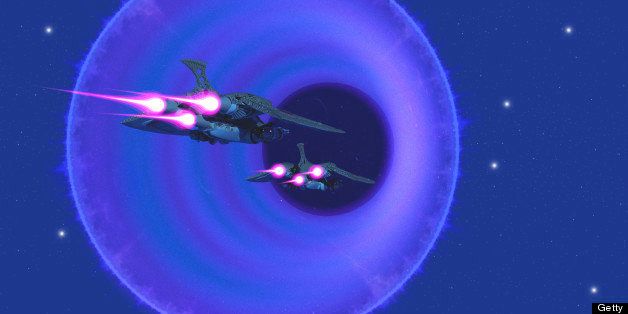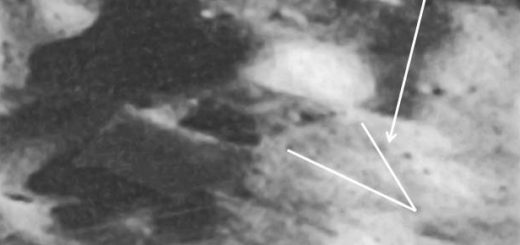Eric Davis, Physicist, Explains Why Scientists Won’t Discuss Their UFO Interests

For a very long time, the scientific community has been wary of studying UFOs, and the scientists themselves hesitate to talk about their beliefs of unexplained aerial phenomena.
But that attitude is changing, and many scientists are joining the discussion without fear of ridicule.
“UFOs are real phenomena. They are artificial objects under intelligent control. They’re definitely the craft of a supremely advanced technology,” says physicist Eric Davis, a researcher of light-speed travel.
Davis, a research physicist at the Institute for Advanced Studies in Austin, studies propulsion physics, which he hopes will one day allow humans to travel easily and quickly through our galactic neighborhood.
VIDEO: Eric Davis explains how humans will be able to travel through space at faster-than-light speed.
He’s aware of the public perception — mostly from skeptics and debunkers — that no legitimate scientists would ever touch the subject of UFOs.
“They’re wrong, naive, stubborn, narrow-minded, afraid and fearful. It’s a dirty word and a forbidden topic. Science is about open-minded inquiry. You shouldn’t be laughing off people. You should show more deference and respect to them … Scientists need to get back to using the scientific method to study things that are unknown and unusual, and the UFO subject is one of them.”
Davis is one of several scientists who are presenting their views this weekend on a variety of UFO-related topics at the 2013 MUFON Symposium in Las Vegas.
The physicist, who recently won an award from the American Institute of Aeronautics and Astronautics for his study, “Faster-Than-Light Space Warps, Status and Next Steps,” knows many colleagues who quietly study UFOs.
“There are scientists who are aware of evidence and observational data that is not refutable. It is absolutely corroborated, using forensic techniques and methodology. But they won’t come out and publicize that because they fear it. Not the subject — they fear the backlash from their professional colleagues. The impact on their career might be detrimental and they’d get bad publicity.
“It’s not an acceptable, funded line of research. The National Science Foundation does not accept UFOs as a subject for scientific study.”
It may come as a surprise that many scientists have been interested in UFOs for decades.
For 20 years, astronomer J. Allen Hynek was the U.S. Air Force scientific consultant on UFOs during its famous Project Blue Book UFO study that ended in 1969.
Watch this 1977 video of Hynek talking about astronomers and UFOs.
Davis believes that the domain for UFO investigations doesn’t really belong in the hands of scientists.
“It’s the domain of military intelligence,” he suggests. “The fact that [unknown] craft are flying around Earth is not a subject for science — it’s a subject for intelligence-gathering, collection and analysis. That’s because UFOs are not a natural phenomenon, and that’s what science studies.”



 Creators of mankind
Creators of mankind Description of “Tall white aliens”
Description of “Tall white aliens” Where they came from?
Where they came from? About hostile civilizations
About hostile civilizations The war for the Earth
The war for the Earth “Tall white aliens” about eternal life
“Tall white aliens” about eternal life Video: “Nordic aliens”
Video: “Nordic aliens” Aliens
Aliens Alien encounters
Alien encounters The aliens base
The aliens base UFO
UFO Technology UFO
Technology UFO Underground civilization
Underground civilization Ancient alien artifacts
Ancient alien artifacts Military and UFO
Military and UFO Mysteries and hypotheses
Mysteries and hypotheses Scientific facts
Scientific facts


















